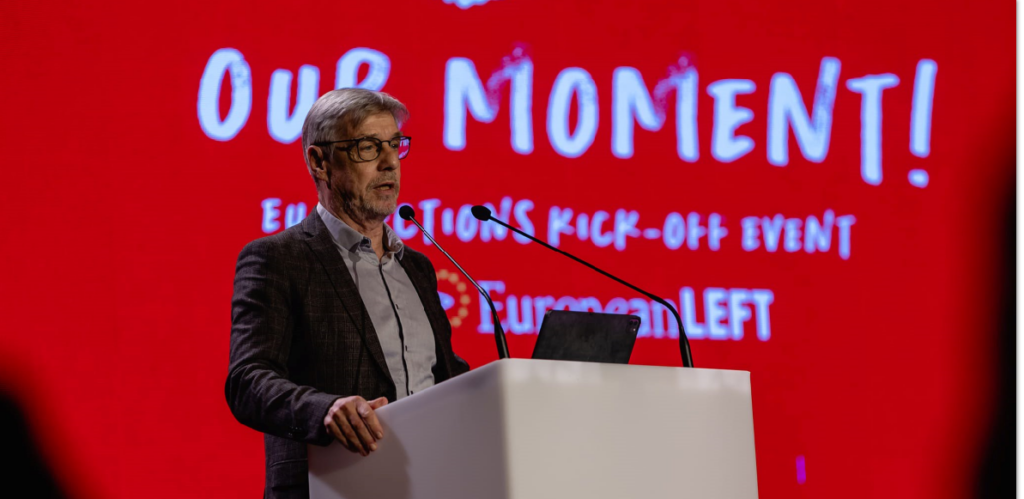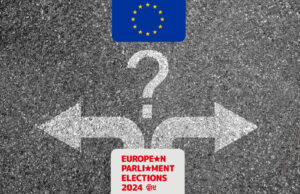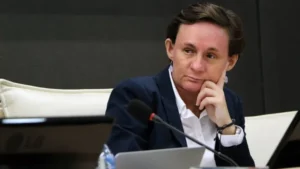Walter Baier, the Party of the European Left’s (EL) lead candidate for the European Parliament elections, on the Election Manifesto, the Wagenknecht party, and the absence of a gender-balanced two-person candidacy.
Last weekend you were chosen as the EL’s lead candidate for the European Parliament elections in June. Would you have preferred a mixed double candidacy?
Yes, absolutely. The problem is that 27 parties have to agree. And this didn’t happen. In fact, the EL has many competent, well-known women with high profiles. I certainly would have had no objection to a double candidacy, quite the opposite.
In Ljubljana the European Left voted a very ambitious Election Manifesto. The items stretched from peace to the struggle against poverty, from economic reconstruction to feminism and to cooperation with the Global South. Is this just a wish list or is there a real strategy?
It’s not a party programme but also not quite a wish list. Rather, it defines the strategy with which we want to carry out the struggle against the radical right. On the one side, this struggle is always one around values and culture – and here there are no compromises in terms of refugee and migration policies consistent with human rights. But, on the other side, the struggle against the radical right can only be won when it is carried out on the terrain of socio-economic interests and ecological transformation. And this, in a nutshell, is the message of this Manifesto, specifically focusing on the questions of life, people’s right to a decent life, to affordable housing, to secure, dignified, and well paid jobs. And especially at a time in which ecological transformation and digitalisation portend such great changes for people what’s decisive is to initiate these transformations on the basis of social security and fairness.
What has enabled the right’s current upswing both in the individual countries and at the European level?
People’s insecurity. The deterioration of social conditions. And where people are not directly affected by this deterioration they fear that they or their children will be in the future. The prevailing politics – conservative, social democratic, and liberal – doesn’t address this insecurity. You almost have the impression that they don’t even notice it. And now people are looking for ways to express their protest. And what’s immediately available is the discourse of simple truths and scapegoats. This is also why it’s so crucial that the left attends to people’s social interests. Everyone has the right to a decent life, the right to be able to heat one’s home in the winter and the right to healthy and affordable food. It is these fundamental questions which need to be addressed in the EU electoral campaign.
As a party family the European Left is considered rather complicated due to its heterogeneity. In some countries there are even several left parties in competition with each other. Is the EL acting in concert despite this?
The word family is very apt. Families are always complicated, and the larger they are the more complicated. I’m looking at the kinds of electoral programmes and common declarations involving the European Parliament elections that emerged in the last weeks. And I must say that these electoral platforms and declarations are identical not even 90 or 95% of the time but really 99% of the time. My job is to express this commonality. And the remaining disputes we can postpone to the time after the European Parliament elections.
Will there be common, that is, Europe-wide activities?
Yes. An important one, which is to some extent outside the framework of the electoral campaign, is a large meeting on 4 April in Brussels, in which the EL will participate, with the title ‘Europe for the People’. We’re organising it together with Belgium’s Workers’ Party, Slovenia’s Levica, and Cyprus’s Akel. The aim is to unite all left parties, whether or not they belong to the EL or are in the common party group in the European Parliament, and thus to show that their commonalities far outweigh what separates them.
Would you venture to predict whether the left forces will have a stronger parliamentary group than they’ve had up to now?
I believe that the election results in most countries will be good. And it is the responsibility of the political leaderships to turn good election results into a stronger group.
In the election manifesto the Russian war in the Ukraine is sharply condemned. In the past there were differences in the EL around this conflict. Have they been resolved?
We’ve gone through a change of perspective. You can debate forever which were the decisive reasons for the Ukraine War and how to weigh the different factors. Here it will probably remain difficult even in future years to come to an agreement. But we can unite around the conviction that this war has to be ended. And that it can only be ended if the parties to the conflict enter into negotiations, and that international law and Ukraine’s sovereignty have to be respected. There is much more potential to unite in looking ahead rather than looking back. The same applies to the war in Gaza. You can debate endlessly whether Israel is an apartheid regime, whether the mass murder on 7 October was a massacre or a terrorist attack. But what’s relevant is that there has to be a ceasefire now, that there needs to be humanitarian aid, that the hostages and political prisoners have to be released. And also to the point is the perspective that a durable peace in the Middle East requires a viable Palestinian state that coexists with Israel. Clearly, it is easier to agree on the future than on the causes of crises.
In Germany the Bündnis Sahra Wagenknecht (BSW – Sahra Wagenknecht Alliance) has established itself as a party. How would the EL react to it if it applies for EL membership?
We would react just as we have in all other cases: We would examine the declaration of principles, the statutes, and the politics of the party and then decide. I’m waiting to see if the BSW defines itself at all as a left party or as a party of the centre. For us, at the moment, the situation is not clear.
Walter Baier was one of the founders of the EL and coordinator of the left think tank Transform Europe. In December 2022 he was elected president of the EL and at the Ljubljana congress in late February 2024 its lead candidate for the European elections.
The interview with Walter Baier was conducted by Uwe Sattler and originally appeared on the website of Neues Deutschland.



